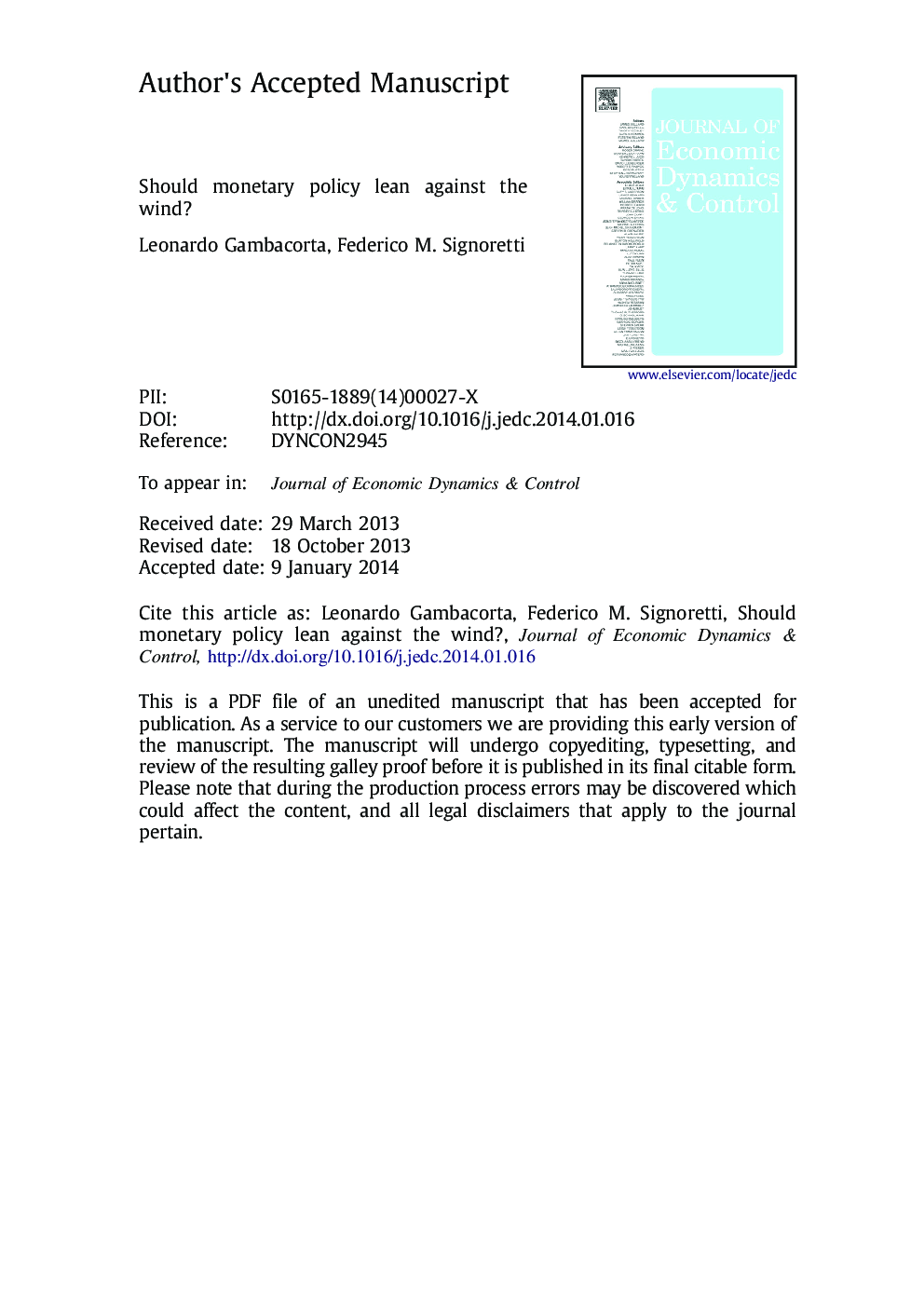| Article ID | Journal | Published Year | Pages | File Type |
|---|---|---|---|---|
| 5098471 | Journal of Economic Dynamics and Control | 2014 | 69 Pages |
Abstract
The global financial crisis has reaffirmed the importance of financial factors for macroeconomic fluctuations. Recent work has shown how the conventional pre-crisis prescription that monetary policy should pay no attention to financial variables over and above their effects on inflation may no longer be valid in models that consider frictions in financial intermediation (Cúrdia and Woodford, 2009). This paper analyzes whether Taylor rules augmented with asset prices and credit can improve upon a standard rule both in terms of macroeconomic stabilization and of agents׳ welfare in a DSGE with both a firms׳ balance-sheet channel and a bank-lending channel and in which the spread between lending and policy rates endogenously depends on banks׳ leverage. The main result is that, even in a model in which financial stability does not represent a distinctive policy objective, leaning-against-the-wind policies are desirable in the case of supply side shocks, while strict inflation targeting and a standard rule are less effective. The gains are amplified if the economy is characterized by high private sector indebtedness. Robustness shows that the interaction between financial frictions and debt-deflation effects is potentially very powerful.
Related Topics
Physical Sciences and Engineering
Mathematics
Control and Optimization
Authors
Leonardo Gambacorta, Federico M. Signoretti,
